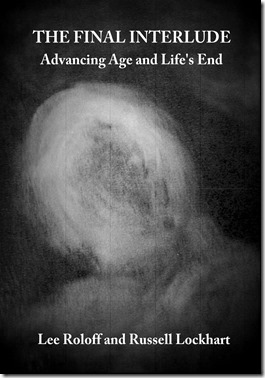TRUMP and Ready-Mades
Most everyone has heard of George Santayana's famous aphorism, “Those who cannot remember the past are condemned to repeat it." But there is a corollary observation: "Those who remember best, are condemned to repeat their memories." This causes the most difficulty when something new is presenting itself and one calls upon the past, the sure knowledge of the past, to explain, interpret and understand the new. With apologies to Marcel Duchamp, I call this using "ready-mades," as if understanding the new was a matter of taking something “off the shelf of understood things." The quickness and certainty with which this happens results in a dangerous cascade of self-similar memes that provide those accepting this with a strong sense of agreeable understanding of what we are witnessing when the new and unfamiliar presents itself. This ready agreeable quality is seductive and inhibits any tendency toward “testability” such as might follow from using Karl Popper’s falsification requirements. What is it that would falsify our ready-made understanding? That question is rarely asked.
We are all complicit in such ready-made understanding. Complicit too is the failure of ready-mades to engage in the more difficult work of "seeing into" the new, for what it is bringing in its wake. This happens at every level of human understanding, from everyday life to the most complex theories of cosmology. We are like the learned church fathers who refused to look through Galileo's lens. Cognitive and emotional bias, both learned and hard-wired underlie or favor ready-mades.
As an example, consider the popular explanation of the Trump phenomenon as the re-emergence of fascism and seeing the presidential candidate as a Hitler. There are many versions of this meme at present; it is widespread, and gaining momentum. This is an example of the "extremity" I described in the last post. The use of this ready-made affects even the most astute cultural critics. For example, Chris Hedges writes about "the revenge of the lower classes and the rise of American fascism." To be sure, he is not using fascism as a simple equivalent of Hitler's and Mussolini’s fascism as many are doing, but helpfully points out how the symbols of the new American fascism will use stars and stripes and crosses. I don't want to argue that these identifications are false or even not useful. But the whole idea of “fascism” is such a ready-made that it potentially blinds us to the "something else" that may be afoot in the new.
It is common to treat archetypal structures and processes as fixed. I prefer to see them as undergoing change, often quite disjunctive change, and evolving. Though we cannot see this in any direct way, the observable phenomena may be used to gain a sense of this. One clue of something "new" emerging is the appearance of things that cannot be predicted from what has been. For example, the generation of the work of Picasso, Matisse and Duchamp, cannot be derived from what occurred in art in previous periods. Teddy Roosevelt, when he saw Duchamp's 1912 Nude Descending a Staircase at the 1913 Armory Show in NYC, declared that the only thing he knew for certain was that this was "not art." This "new" art was so "scandalous," that it caused riots in Chicago. We can see that these artists were energized by what Jung referred to as a new dominant, which also energized Jung's inner experiences (and painting thereof) and led to the formulation of the collective unconscious. Jung attended the Armory show and his paintings would have fit well alongside those on exhibit. Such new dominants do not remain “local” but begin an ever-increasing spread in all directions. Only later do they become identifiable enough to be called “paradigms,” or “movements,” or “ages.”
I said in my last post, that “something unexpected, unpredicted, unknown, and likely uncontrollable has entered into the present campaign," and that “there is some unknown archetypal energy being carried by Mr. Trump more than by any other figure.” If this is true to any degree, then it is time to work on what this might be without reaching so quickly for ready-mades.
I will turn to that task in the next post.
